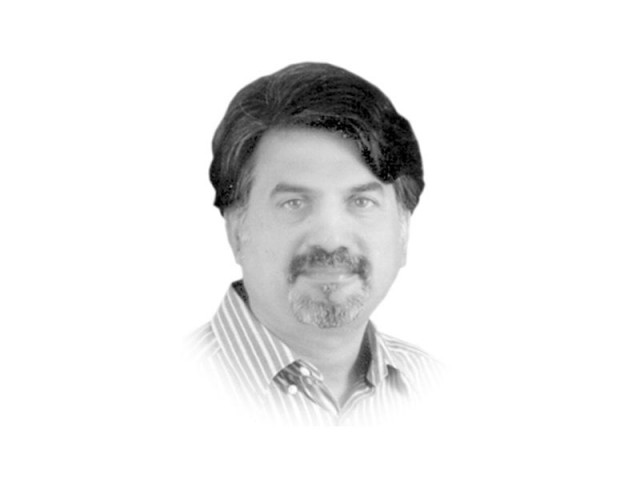Disturbing Russian claims
Is the US implementing a two–faced policy in Syria?

The writer is a retired lieutenant colonel of the Pakistan Army and
a PhD in civil-military relations
Is the US implementing a two–faced policy in Syria? Ideally, Washington’s stated aim of fighting and eliminating the IS militants should be in line with its military actions on the ground. The attack on the Syrian military troops and even the aerial images that the Russian Ministry of Defence has published ‘showing US army Special Forces equipment lying close to IS militants deployed north of Syrian town of Dier Ezzor’ raises question marks on the stated US policy of elimination of IS militants in Syria. Given that Russia also claims that its surveillance shows that the US-backed Syrian democratic forces (SDF) are ‘avoiding a fight with IS militants’ and that the IS militants are in communication with the US ground and air forces for target indication and acquisition - a military mind may be forced to ask: are there any military, political or geopolitical goals that are forcing the US to take a back step and do the opposite for the time being.
Many jihadists from Central Asia and Azerbaijan have joined the IS ranks and Russia knows well that if not neutralised in Syria they will at some point in time come back home and cause it trouble. Yet Russia’s top mission in the Syrian civil war is to salvage the Bashar Assad regime and in doing that it warns and even carries out military actions against opposing forces supported by the West. Although Russia has proposed the formulation of a grand alliance to fight the IS militants yet joining that grand alliance for the US and the West means joining Russia’s coalition with Iran, Hezbollah and Syria. Any grand alliance would require the Europeans, Saudis and the Gulf Arab states to be its members but all these states are determined to see the back of President Bashar al Assad given what they allege he has done to his people. No wonder the US and the Russian objectives in the ongoing Syrian civil war hardly seem to be compatible. While Russian military priority is the continuity and sustenance of Assad’s regime the US and its allies want to ensure the opposite. The geographical proximity of IS threat (Iraq and Syria geographically much closer to Russia than US) and also the warning by IS that it would ‘liberate Chechnya’ and that it would ‘wage a war in north Caucasus’ are reasons enough for Russia to engage and obliterate the IS threat in Syria but would the same reasons be motivating US to do the same.
Defeating the IS (a global threat) no doubt requires effective military action but if the great military powers give priority to furthering their military victory and achievement of their solution to the Syrian conflict the IS will remain a potent threat. It may take another form and shape like al Qaeda in Iraq transformed into ISIS but it will not cease to remain a threat – not unless the powers that be stop implementing dual-faced policies that suit only their interests.
Published in The Express Tribune, October 23rd, 2017.
Like Opinion & Editorial on Facebook, follow @ETOpEd on Twitter to receive all updates on all our daily pieces.















COMMENTS
Comments are moderated and generally will be posted if they are on-topic and not abusive.
For more information, please see our Comments FAQ